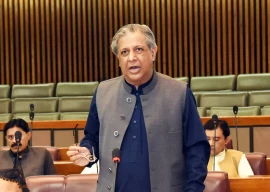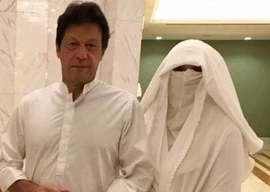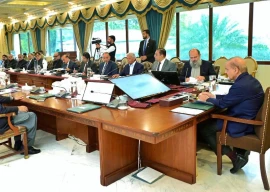
As cricket grapples with the struggle posed by accommodating three formats in the sport’s calendar simultaneously, there have been growing calls for a reduction or even a wrap-up of the One-Day International (ODI) game. Since the advent of the Twenty20 crash, bang and wallop version, ODIs have been left behind as that rather inconsequential middle child, sandwiched between the glories accorded by the Test format and the commercial gains that Twenty20s offer.
Pakistan, it seems, can’t wait for the 50-over variety to be shelved, mired as they are in archaic game plans and strategy. The ODI format has turned to be nothing short of a horror story for the national team in recent years. While in Tests and Twenty20s, the Asian giants occupy the number two spot in ICC rankings, they languish at an abysmal number eight in the ODI rankings.
All through the 1980s and 1990s, Pakistan were regarded as an ODI powerhouse. Besides the World Cup win in 1992, they had won countless bilateral and multilateral tournaments all around the world. The batsmen could decimate the best attacks; the bowlers could flatten the best batting line-ups, at times with consummate ease. A look at the riches that Pakistan boasted off in the 1990s can leave fans wistful — Saeed Anwar, Aamir Sohail, Ijaz Ahmed, Saleem Malik, Shahid Afridi, Wasim Akram, Waqar Younis, Saqlain Mushtaq, Shoaib Akhtar, Moin Khan, all players who through the sheer weight of their personalities and oodles of talent won us many an ODI.
Things have presented us with quite a contrast since the turn of the millennium and more specifically since the advent of powerplays and fielding restrictions, which allow a maximum of only four fielders outside the 30-yard circle for the majority of an ODI match. Pakistan — in the Shahid Afridi and Misbahul Haq captaincy era starting from April 2010 to March 2015 — failed to come to grips with the tinkering in the playing conditions. Stroke players like Ahmed Shehzad, Shahzaib Hasan, Kamran Akmal, Sharjeel Khan, Umar Akmal, Sohaib Maqsood and a host of others were forced to buckle down and build their innings sedately while David Warner, AB de Villiers, Rohit Sharma, Chris Gayle and more recently Jos Buttler were throwing caution to the wind from the onset. Pakistan seem to have finished off all the flamboyance that the above-mentioned stroke-makers were capable of. Only Shehzad is still part of the squad although he, too, was on the bench for the first three ODIs against England.
Various captain and coaching combinations in the last five years have collectively failed to give extended runs to their most talented players in the top order, with team think tanks seeming to be hampered by their cluttered mindsets, mostly preferring stability over flair and largely failing to achieve both. The failure to break the shackles and the infuriatingly cautious mentality is best illustrated in the usage of players who have been placed in the top four. Out of his 100 ODI innings, Umar has batted in the top four only six times! Maqsood who — batting at number three — flayed South African bowlers for consecutive fifties in his first two ODIs hasn’t batted at that number since.
The search of ‘stability’ forced the selectors to recall Younus Khan for the England ODIs, only for the country’s highest Test run-getter to realise that the new 50-over game is well beyond his advancing years. A revamped team under Azhar Ali has now played 18 ODIs since the World Cup. After feasting on the Zimbabwean attack and making the most of the loss of sting that Sri Lanka have suffered from, the team fell woefully short of the desired goals against England. Like the recurring recent trends, the Waqar-Azhar think tank, in collaboration with the selectors, has wielded the axe on newcomers without giving them adequate opportunities. Most of the newcomers have been thrown into the deep end one day and left out the next without any plausible reasons. Since the World Cup, Saad Nasim, Sami Aslam, Bilal Asif, Iftikhar Ahmed and Zafar Gohar have been the five unfortunate debutants who haven’t played more than three games. All five performed credibly in their opening ODI exchanges — Asif snared the man-of-the-match in the series decider against Zimbabwe, Nasim played a 77-run innings against Bangladesh, Sami scored 45 in his only ODI appearance.
In addition, batsmen are being needlessly floated around the order within the playing-eleven. Babar Azam scores a fifty in the first game against England, struggles as an opener in the next two and returns to the middle order to score another fifty in the final game. Iftikhar bats at four in his debut game, fails, gets dropped down to number seven in the next match, before being chucked out of the eleven altogether. More than the opposition, it seems that the team is pitted against its own self. The number eight ranking, therefore, is an apt reflection of the prevailing mess.
Published in The Express Tribune, November 25th, 2015.
Like Opinion & Editorial on Facebook, follow @ETOpEd on Twitter to receive all updates on all our daily pieces.





























































COMMENTS (1)
Comments are moderated and generally will be posted if they are on-topic and not abusive.
For more information, please see our Comments FAQ